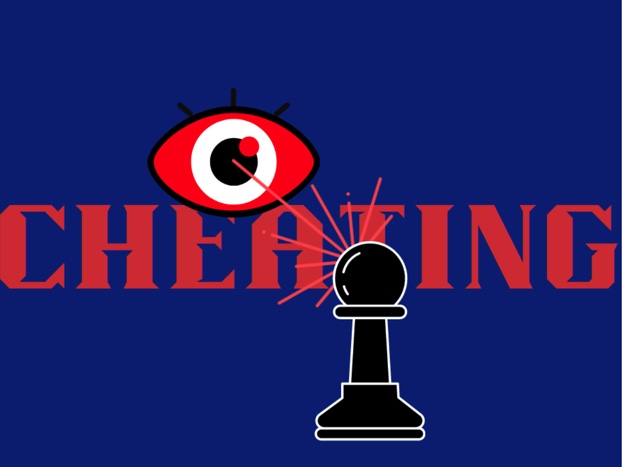The idea of fairness is not usually at the forefront of a chess player’s mind thanks to the game’s well defined rules and restrictions. However, the competitive integrity of the game has been called to question over a recent controversy.
It all started in the 2022 Sinquefield Cup after Magnus Carlsen, widely celebrated as the World Chess Champion at the time, accused his opponent Hans Niemann of cheating after being defeated in a massive upset. The pot was stirred further that following week when Carlsen replayed against Niemann, only to resign after the first two moves. Criticized and questioned by many, the act represented unsportsmanlike behavior and served as the fuse which would spiral into a cascade of events that would make waves across the chess community.
Despite exhibiting what many would call a lack of sportsmanship, Carlsen doubled down on the accusations in a statement. “When Niemann was invited last minute to the 2022 Sinquefield Cup, I strongly considered withdrawing prior to the event. I ultimately chose to play. I believe that Niemann has cheated more – and more recently – than he has publicly admitted,” he declared.
The drama has found its way into the walls of PV as well. Abhyudaya Shukla, a member of the PV Chess Club, took a more lighthearted approach to the situation. “My initial reaction was extreme laughter. I have heard about elaborate cheating scandals, but this was by far the most interesting and funniest. But the case also raises questions on ensuring fairness and accountability,” he stated. Many people also shared this sentiment online, with frequently posted jokes about how Hans Niemann could have stolen the match.
But how can a player actually cheat in a game of chess?
While some are leaving the answer to speculation, current information suggests that, during the in-person match, Niemann may have discreetly used a device installed with a program commonly referred to as an “engine,” a software designed to simulate millions of top-level games and determine a perfect move in response to an opponent. Regarding other suspicious activity, Carlsen also highlighted Niemann’s lack of concentration during pivotal moments in his matches, adding to the overall suspicion that his decisions were not his own.
Currently, there is not enough information to confirm or deny Niemann’s legitimacy. Shukla also gave his opinion on the state of the investigation. “It’s really hard to tell what happened. Carlson resigned during an online game against Neimann and turned his camera off after move one as an act of protest but it’s still complicated on whether or not cheating actually occurred,” Shukla added.
The concept of cheating in chess remains an ambiguous topic, even for top-level players, since most attempts to find evidence of suspicious activity in a game of chess results in superstition and confusion. While the resolution of the Carlsen vs. Niemann controversy remains uncertain, tournament organizers have made efforts in the meantime to uphold the integrity of future events. In the future, increased surveillance in tournaments will make any nefarious chess player think twice before trying to cheat.









